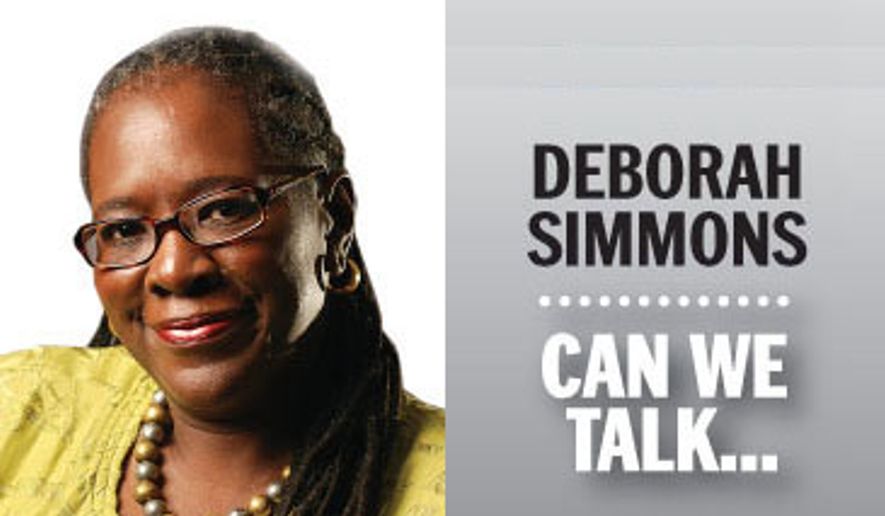ANALYSIS/OPINION:
“Can you hear us now?”
That is the question facing lawmakers and the mayor as the D.C. Council gears up for what could be one of its most contentious public hearings of the election season, thanks to Mayor Muriel Bowser.
The hearing, scheduled for the morning of March 17, is about curing the city’s ornery homeless problem, and the political solutions on the table turn on the ornery proposals offered by the mayor.
In short, the mayor tied the closing of the city’s family shelter hard by Capitol Hill to building and opening smaller shelters in seven of the city’s eight wards. Residents in those seven wards aren’t exactly thrilled. In fact, some homeowners and other stakeholders are outright angry — as well they should be — because the Bowser administration held politically incestuous meetings to choose the seven sites.
And for the record, their anger and frustration are neither a class thing nor a race thing. It’s a listening thing.
SEE ALSO: Pi Kappa Alpha frat members face 112 charges, $275k fine for off-campus party near AU
Council member Mary Cheh of Ward 3, the wealthiest area in the nation’s capital, supported the Bowser plan before voters and other stakeholders had been briefed on it. Ever since, she and the administration have been hit with criticism. Ms. Cheh repeated her miscues Saturday during a community meeting, where residents lobbed barbs at city officials who again tried to defend the plan.
Understand, folks agree with city officials to close the deplorable and unsafe family shelter on the grounds of the old D.C. General Hospital. Their chief complaint is the shady process by which the Bowser administration chose the new sites. Indeed, the administration and most lawmakers appear hellbent on closing their ears to concerns.
For example, the mayor wants to open the Ward 3 site along Wisconsin Avenue, which is prime real estate in anyone’s ledger.
Another example is the proposed Ward 5 shelter, which would be situated in a funky industrial zone — an area that fails to meet even the mayor’s own criteria to be built near recreational, educational, environmentally sound and residential properties that would support a family atmosphere.
Well, Ward 5 residents have devised a list of alternate sites, something she said Ward 5 council member Kenyan McDuffie failed to do.
So, here goes a slew of alternatives:
• Fort Totten near the University of the District of Columbia-Backus campus.
• Smaller sites scattered throughout Ward 5.
• Potomac Prep Charter School, which is closing.
• Tree of Life Public Charter School, which is closing.
• Rhode Island and Newton Street (former tourist home).
• St. Frances De Sales School and Convent, which is vacant and available.
• Former Metropolitan Police Department Youth Division at 17th Street and Rhode Island Ave. NE.
• 2900 South Dakota Ave. NE, which is vacant and available for purchase.
• Former schools, including old Spingarn High School and Crummell Elementary.
• Convert the $3,400 per room-per hotel homeless housing program into vouchers for affordable housing.
As it is, Ward 5 has long been the dumping ground for the city’s undesirables, parolees and halfway house refugees, industrial and commercial outcasts, and home to NIMBY rejects from elsewhere in the city.
That the mayor wants to plop a family shelter along a dead-end street that abuts railroad tracks and a stinky Metrobus maintenance facility speaks volumes. That she sells it as a safe and healthy area for children is a falsehood.
What’s more, these new sites in seven wards will not solve the homeless problem. In fact, all these new sites that the council and the mayor want will do will remove homeless families living on the edge of Capitol Hill and sprinkle them around the city. The thousands of homeless people living on the streets, or in their cars, or in hotels and motels will still be homeless.
Ms. Cheh, one of several council members who wants to hoodwink stakeholders about solving the city’s homeless problems, must not have heard residents on Saturday or she wouldn’t have said this as they balked at the proposal: “If it comes before the council and it still doesn’t have the features that I want, then I will vote against it.”
“Features that I want.” Hmm. “I” can be such a selfish pronoun.
Here’s hoping stakeholders give the mayor and the council a lesson on who’s the boss at the hearing — and teach city leaders a thing or two about the difference between “I” the elected official and “we” the voters and taxpayers.
They deserve to be heard.
• Deborah Simmons can be reached at dsimmons@washingtontimes.com.
• Deborah Simmons can be reached at dsimmons@washingtontimes.com.




Please read our comment policy before commenting.